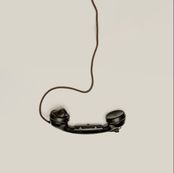|
One in three people between the ages of 65 and 75 has some level of hearing loss and nearly half of people over 75 have an impairment. If you multiply in all the people who are friends and partners of these people, its impact is widespread. It is an annoyance at the least, and also a factor in the health and well-being for both the people who have the loss and the people around them. This writing is dedicated to understanding more about hearing loss and living with hearing loss, for yourself or a loved one. The Health Impact of Hearing Loss Staying connected is one of the main determinants of continuing health as we age. Maybe the most common complication of an uncorrected (or poorly corrected) hearing loss is the tendency to become more isolated. There is frustration and embarrassment when not being able to follow a conversation or having to continually ask friends and loved ones to repeat what they just said. It will often keep people away from public events. The most common type of hearing loss is the inability to hear higher pitches and that will make it more difficult to hear in noisy environments. Not staying connected leads to a host of other concerns. Here are a few: Depression One study found that people with hearing loss were twice as likely to have symptoms of depression as those without hearing loss. Feeling more cut off from conversations, less able to pick up on humor or stay with the more subtle, quieter parts of the conversation can contribute to a drop in self-esteem and social confidence Cognitive Decline Not being as connected through conversation, whether out socially or at home, or even through listening to radio or watching television lessens stimulation for the brain. People with uncorrected hearing loss are at least 25% more likely to experience some form of cognitive decline over time (and other studies estimate it is between two to five times more likely!) Injuries and Falls This is a complication that I hadn't stopped to completely understand. Individuals with hearing loss are less able to pick up on cues in the environment. For example, they may not be able to hear their steps as they walk or the creaking of an unstable surface. They may not hear timers go off, something boiling dry on the stove, warning alarms, traffic sounds, or even doorbells. Fatigue People with hearing loss who are trying to stay with a conversation, watch television or pick up on sounds in nature expend a lot of energy. They will experience feeling mentally and even physically tired from staying with life through the day. The brain gets tired from trying to decipher the sounds. Relationships And finally, there is the toll on relationships in cases of hearing loss. I will address that in a bit more detail below. While the person with hearing loss may begin to isolate or feel cut off from conversation, the person living with the person with hearing loss will also begin to cut away or quit communicating in subtle ways as it takes so much more energy to do so. Thus, relationships deteriorate if hearing loss is not addressed. All of these complications make a strong case for swallowing vanity and pursuing correction. The cost of doing so can quickly seem like a great investment, and yet people hold back from doing so out of concern for cost, inconvenience or frustration.  Preventing Hearing Loss There are a few things that we can do to lessen our risk of hearing loss, though these would best be utilized earlier in life than at retirement. People with diabetes and pre-diabetes currently make up 52% of our population. People with diabetes are twice as likely to have hearing loss, and those with pre-diabetes are 30% more likely to have hearing loss. While the link isn't understood completely, we know that keeping our blood sugars in control is a great way to prevent hearing loss. Noise exposure is well-documented in causing hearing loss. We often think of loud rock concerts and airplanes taking off as sources of significant noise. However, we also need to be mindful of noises in our home environment. I know that I have a very noisy hair dryer that I use right up by my ears, as an example. The more we can protect our ears, the less damage we are doing. Smokers are 60% more likely to develop high-pitched hearing loss and 20% more likely to develop low-pitched hearing loss than non-smokers. This is mentioned much less often in the list of risks and complications of smoking, but this is one more reason to drop the habit.  Living with Someone with Hearing Loss Hearing loss not only impacts the person experiencing it, but also those living or in relationship with them. A simple example is telephone usage. If one's partner can't hear the phone ringing or hear the person on the other end, that communication responsibility falls onto the partner. Partners or loved ones reported enjoying social events less due to their partner's hearing loss. They also reported having to attend more things alone as the partner didn't want to attend. Thus, over time both partners begin to become more isolated. There is also fatigue on the part of the partner as they have to put out extra effort in communicating so that they are heard and need to communicate the more subtle parts of conversation more intentionally. And there is frustration with the situation and energy is expended trying not to feel frustrated. Having grown up with a father with a hearing loss, I can attest to the toll that took on my mother. If you have someone with a hearing loss in your life, these are basic but important ideas for communicating with them (www.ucsfhealth.org):
The Bottom Line There are a host of reasons aside from just inconvenience to get help for a hearing loss. It is more common than heart disease with lots of serious implications for us and yet we don't give it the same amount of attention. Attending to it could change the quality of the rest of your life, both for you and your loved ones. When seeking help for a hearing loss, the quality of that help will be a huge determinant in the success of your eventual outcome. A board-certified doctor of audiology is fully educated to help you with the intricacies of your particular needs and solutions to problems vs. a salesperson. Don't give up if you don't get the right help the first time! There are many ways to improve the outcome, whether through your original provider or someone else. Hearing aids have grown to be sophisticated devices. Many of the newer ones allow you to bluetooth your television and your cell phone directly to the hearing aid. I think we are approaching the time where people will want a hearing aid as it adds a lot of convenience. Whether you have hearing loss or you love someone with a hearing loss, self-care is crucial. Don't forget to take careful care of you! It is a major factor in your next years.
Clason, Debbie. Emotional Effects of Untreated Hearing Loss. https://www.healthyhearing.com/report/50526-Emotional-effects-linked-to-untreated-hearing-loss
Griffin, Katherine and Bouton, Katherine. Hearing Loss Linked to Dementia. htttps://www.aarp.org/health/brain-health/info-07-2013 Hu, H, et al. Smoking, Smoking Cessation, and the Risk of Hearing Loss: Japan Epidemiology Collaboration on Occupational Health Safety. https://academic.oup.com/ntr/advance-article-abstract Johns Hopkins Medicine.The Hidden Risk of Hearing Loss. https://www.hopkinsmedicine.org/health National Institute on Hearing Loss and Other Related Disorders. Age-Related Hearing Loss.https://www.nidc.nih.gov/health/age-related-hearing-loss Packer, Lisa. The Complex Link Between Depression and Hearing Loss. https://www.healthyhearing.com/report/52437-The-complex-link-between-depression-and-hearing-loss Science Daily. Is Your Partner's Hearing Loss Driving You Mad? https://www.sciencdaily.com/releases/2017/10/17/1006085924.htm Tsai, Allison. Hearing Loss and Diabetes. www.diabetesforecast.org/2014/12-dec UCSF Health. Communicating with People with Hearing Loss. https://www.ucsfhealth.org/education
1 Comment
|
AuthorRuth Tongen helps people plan and live meaningful, fun and healthier retirements. Archives
January 2022
Categories
All
|
|
Ruth Tongen 952-223-1121 [email protected] www.ruthtongen.com Copyright © ruthtongen.com. All Rights Reserved. |
Questions or to
Schedule a Free Consultation Sign up to receive Meanderings:
The New Retirement via email x
Receive a copy of Meanderings: New Ideas for Retirement in your email.
|



 RSS Feed
RSS Feed
